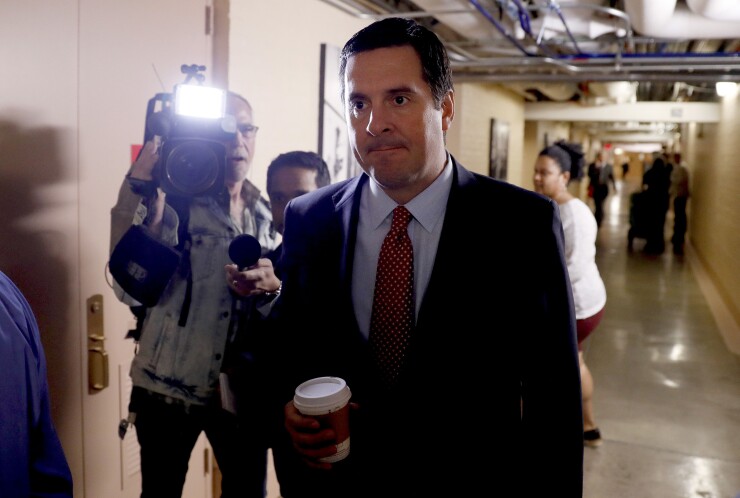
WASHINGTON – The appointment of Rep. Devin Nunes to the executive committee of President-elect Donald Trump's transition team has sparked fears among some state and local officials that he may gain support for his controversial pension bill next year.
The Public Employee Pension Transparency Act (PEPTA), H.R. 4822, which the Republican from California introduced in March, would bar state and local governments from issuing tax-exempt bonds unless they filed annual pension plan reports with the Treasury Department. The bill is virtually the same as measures he introduced in April 2013 and February 2011.
John Saeli, vice president of strategy and government affairs, at ICMA-RC, which helps public sector employees build retirement security, raised concerns about Nunes' playing a key role with the transition team and what that may mean for his pension bill during a federal issues overview at a National League of Cities conference in Pittsburgh on Wednesday.
A National Association of Counties official also expressed concern, saying, "Given the congressman's interest in state and local pensions, we'll continue to monitor for any developments."
But sources said Nunes was probably tapped for the transition team executive committee because he is chairman of the House Permanent Select Committee on Intelligence.
Also, one governmental source said the Nunes bill would be "superfluous" and potentially confusing, given the new GASB standards as well as the recent pension and reporting efforts of actuaries and credit rating agencies.
The Public Pension Network released a flyer earlier this year noting that the Governmental Accounting Standards Board (GASB) revised its accounting standards on public pension reporting. GASB's Statement 68, to be implemented in state and local government financial statements this year, will require governments to report their net pension liabilities on their balance sheets.
Nunes' bill was widely criticized by state and local governments and pension groups who said it was an unnecessary and inappropriate intrusion into governmental affairs.
Under the bill, the pension reports turned into Treasury would have to include funding status, assets, net unfunded liabilities, and funded percentages. A government would have to use fair market value or the Treasury yield curve to determine its unfunded labilities in its report. If it did, it would have to file a supplemental report to Treasury with those calculations.
The reports would also have to include schedules of contributions for the year, the actuarial and rate-of-return assumptions used, and investment returns for the year as well as the past five years.





